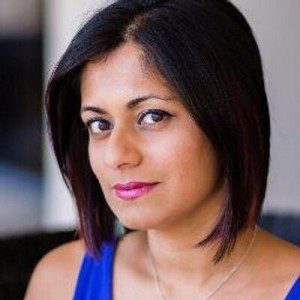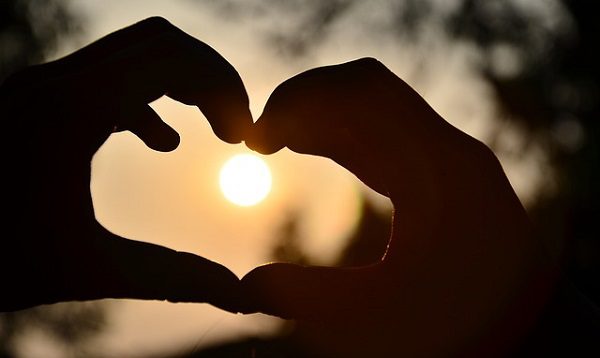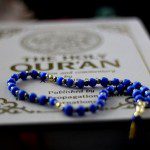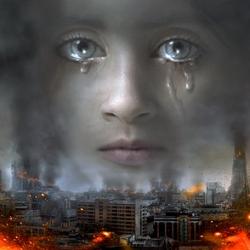This is Day 30, the last day, of the #30Days30Writers 2016 Ramadan series.
By Tanzila “Taz” Ahmed
Isn’t it funny how if you do something repetitively long enough, it can slowly turn into tradition? Growing up in our home, I knew that every Eid morning Mom would have a pot of sugary and squeaky roshghollas cooking for us so that we would have a bite of something sweet before heading out to morning Eid prayers.
We would race to the local convention center, scramble for a parking space and just barely make it in time for 8 a.m. prayers. We’d triple kiss the cheeks of aunties, and admire the hennas on hands. At night, all the aunties and uncles would come over to our house and Mom would serve her chicken biriyani which she had spent all night preparing. It was our tradition.
For us now, it is tradition to go buy flowers after prayers and drive straight to the cemetery. We will lay flowers on Mom’s grave and recite Surah Al-Fatiha. We will get sentimental and likely cry. This will be our fifth Eid-ul-Fitr without her, and it is stunning to me that these graveyard visits on Eid are now tradition. At what point did these graveyard visits become tradition? There will be no roshghollas on the stove, no biriyani in the oven. We have new traditions now.
+++
Our mother was the spiritual compass in our family. She would be the one that called us in to Maghreb prayer and she was the one who woke us up in the morning to eat for suhoor. Without her, it felt like the spiritual compass went awry in our family and in myself.
It’s for that reason Ramadan serves as a very important spiritual touch point and the place where I try to figure out my own traditions. In my version of Ramadan, it’s now tradition to break at least one fast with an iftar-to-go box from the local shop in LA’s historic Little Bangladesh.
It’s also tradition to make it to one Jummah prayer at the Women’s Mosque of America and to host a radical/queer iftar for my chosen friends. It’s tradition now to have a “Ramadan special” episode of our #GoodMuslimBadMuslim podcast.
And the most important tradition that’s spiritually grounded me the most is the hosting of the Poetry-A-Day-For-Ramadan writer collective. Poetry as a spiritual practice, particularly within Islam, is a time honored tradition going back as far into the prophet’s days.
As I reflect back on the past 30 days, the theme that is uplifted the most is the one of safety and safe space. My Ramadan this year started with protesting in front of the Pasadena courthouse at the “felony lynching” sentencing of Black Lives Matter activist Jasmine Richards. Just a week later, I was breaking my fast at a candlelit vigil on steps of LA’s City Hall for the Latinx victims of Orlando’s Pulse shooting.
The week after I performed poetry at an iftar raising funds for a youth program to bring Japanese and Muslim youth together on a fellowship. And the week after that, I was praying Jummah at the women only space of the Women’s Mosque of America.
Ramadan for me was speaking up against police brutality against black people; it was about holding space and speaking out as an ally for the Muslim queers in my life; it was about building solidarity and creating safe space for women.
This Ramadan I’ve had conversations about how queer Muslims exist and how they have been pushed to the margins of traditional Muslim spaces. I’ve had conversations about the toxicity of masculinity and how gun control may be a stop gap solution but won’t fix the systems of oppression. I’ve had conversations on the use of art by Muslims to disrupt and disorient and debates over discussing if satirical art is pandering self-stereotyping for the mainstream.
I’ve had conversations about how the recently deceased Muhammad Ali was a Black Muslim American who truly boxed out of all kinds of boundaries trying to keep him in. And I’ve had conversations about how the reality television show that is the presidential candidacy of Donald Trump has lead to a direct correlation of the increase of anti-Muslim hate crimes in this nation.
I have tried so hard to calm the rage burning inside me this Ramadan. It is, after all, the month where we were supposed to be introspective and meditative. But Trump, Daesh and all those inner demons wouldn’t let us have this Ramadan quietly. As of today, there have been terrorist attacks in Madina, Dhaka, Baghdad, Istanbul, Jeddah, Kuala Lumpur, Kabul, Mogadishu and Qatif – all Muslim majority countries where the attacks were conducted by a terrorist group who uses “Islam” only in name.
Domestically, in the past week people have been shot or stabbed in front of mosques in Orlando, Houston, Brooklyn and Minnesota by anti-Muslim attackers, spurred on by Islamophobic campaigning of the right-wing. On one side, DAESH is attacking Muslims around the world and on another side, American politics is using Muslims in a fear-mongering political tactic.
How are you supposed to calm your outrage when constantly feeling like you are under attack for believing what you do?
+++
After last night’s iftar, my Dad grabbed his keys and put on his thupee (prayer hat) and headed to the door. He was on his way to the mosque for nightly tarawih prayer. It was the last nights of Ramadan, and the nightly prayers were getting longer and longer.

I asked him if his mosque had security. I told him to be safe. I worried if his “Muslim garb” of a white robe and thasbee (prayer beads) in his hands would make him a target for a crime. I worried when he wasn’t home by midnight, and texted him concerned. He was home by 1 a.m., but I wondered what kind of American freedom we lived in if we feared practicing our faith in our holiest month of the year.
As we close out Ramadan, I challenge each of us to think about what we will take with us into the next year. How do we hold safe space for all kinds of Muslims and people of color to exist in this world and in our own personal community? How do we make each other feel safe?
How do we love each other and hold each other in this time of fear? How are we changing our traditions and decolonizing our spiritual practice to truly be leading with our hearts? How are we living our Islam authentically and exploring ways to share our narratives and traditions to push back against those who seek to rip our hearts away from us?
Life is too short. It’s way too short for fear and rage to guide us in life. Love the people you have in your life and hold them safe. And make room to love those on the margins. We need solidarity and compassion now more than ever. And I can’t imagine a more judicious Ramadan revenge than one that is driven by the value of love.
Encompassing love. Permeating love. Radical love.
Tanzila “Taz” Ahmed is an activist, storyteller and politico based in Los Angeles. She is co-host of the #GoodMuslimBadMuslim podcast and Campaign Stategist at 18MillionRising.org.












